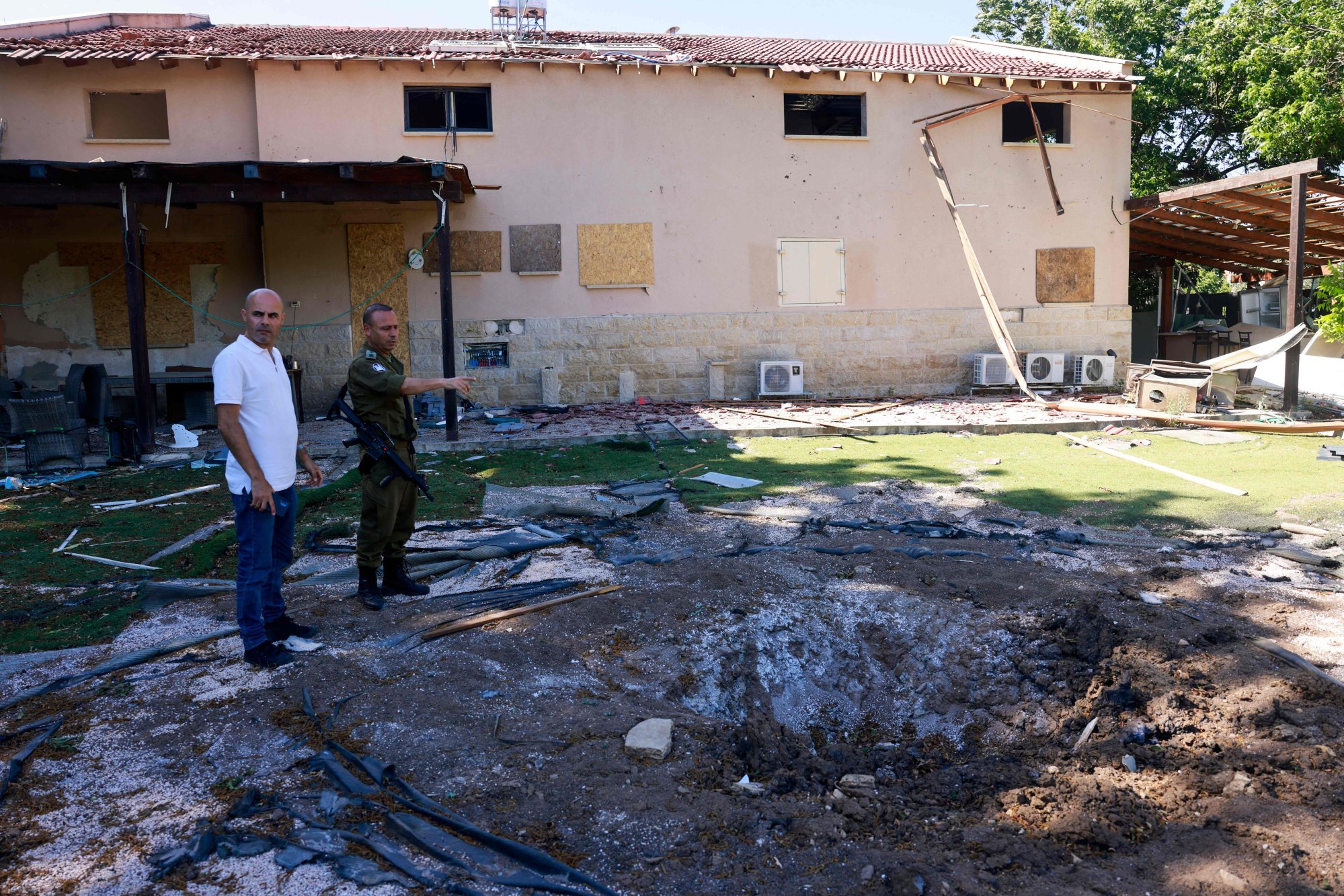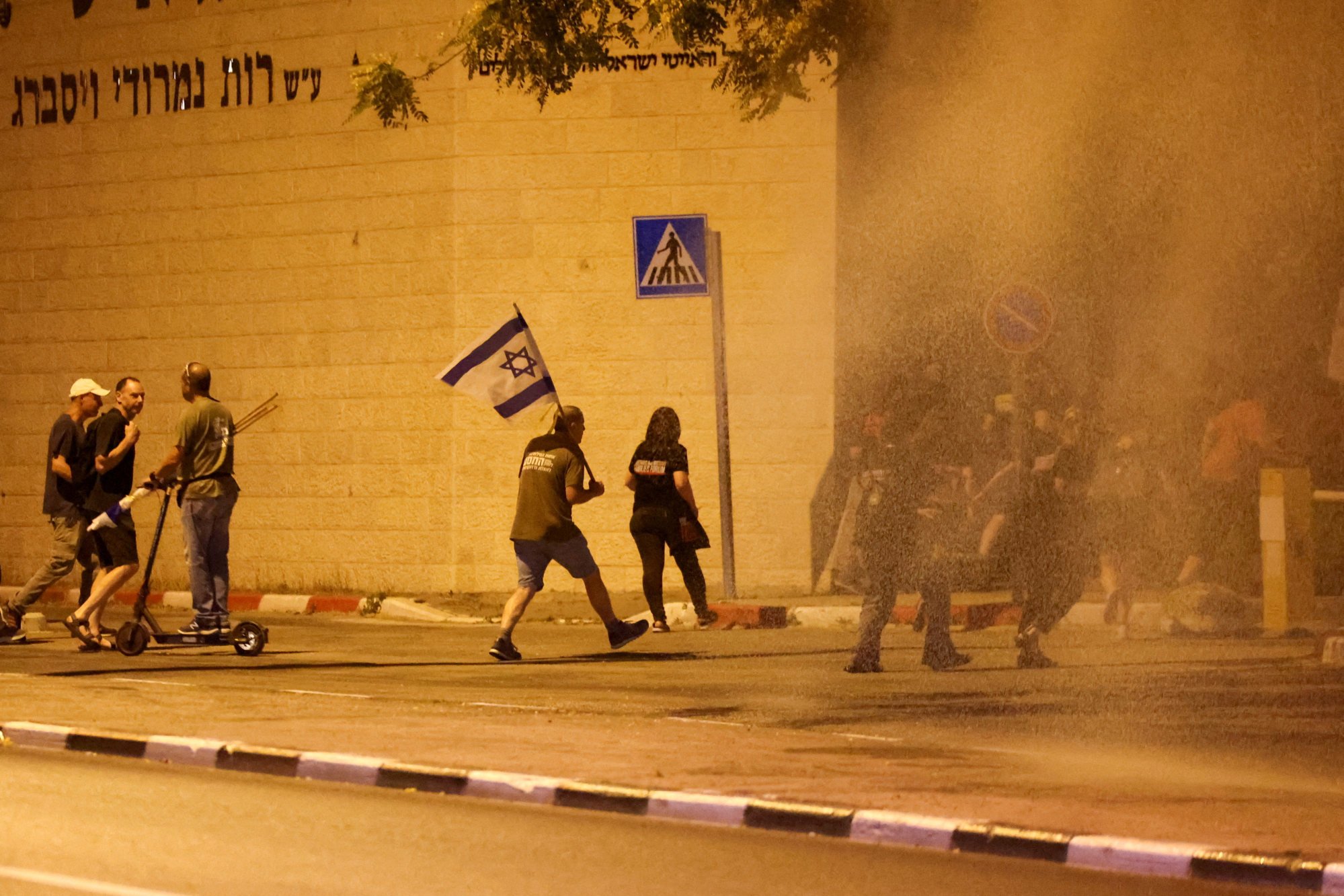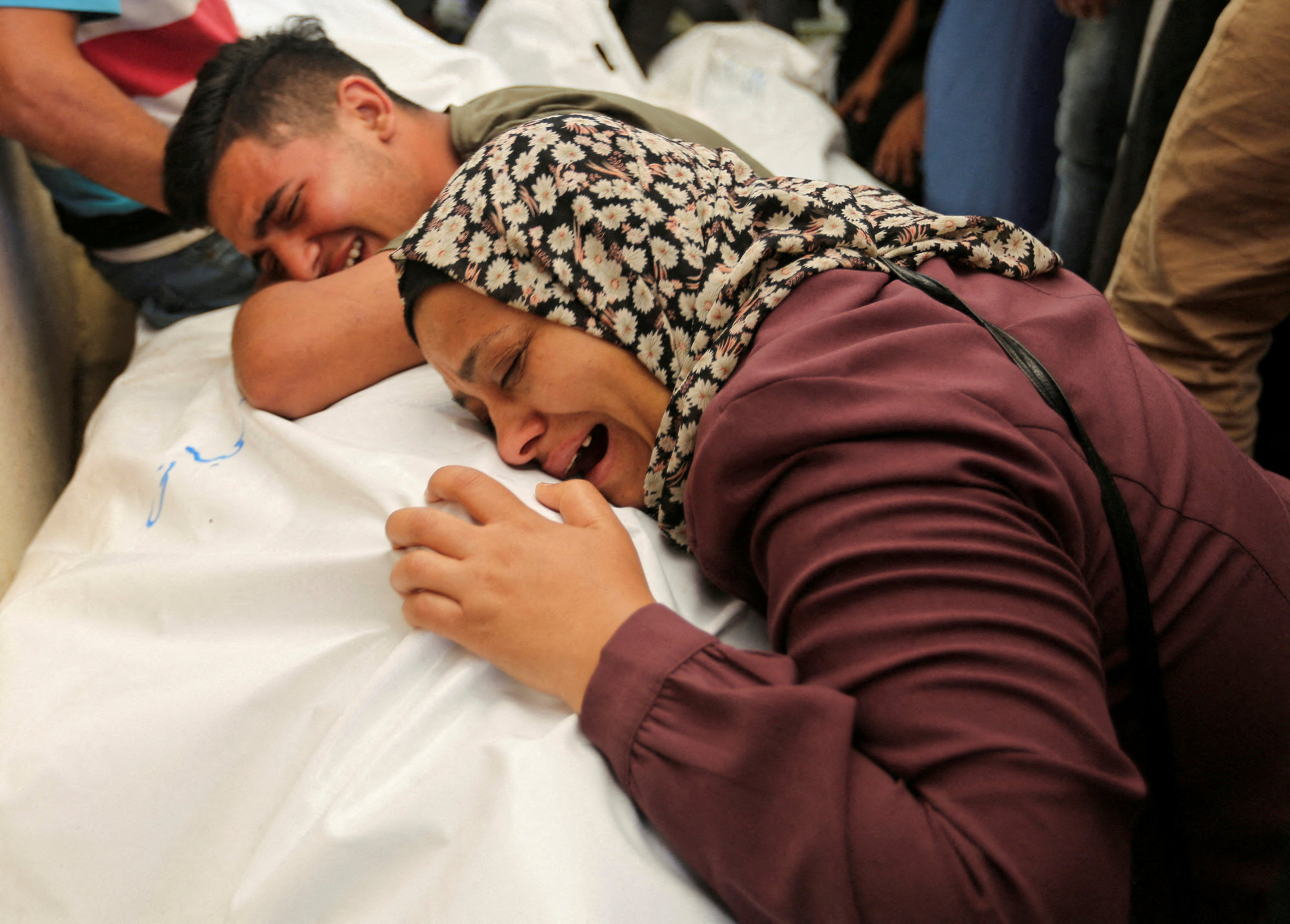It came after Israeli Foreign Minister Israel Katz threatened Hezbollah’s destruction in a “total war”.

The latest warnings came after Israel announced at the weekend a daily “pause” of military activity in Gaza’s southernmost city of Rafah to facilitate aid flows, coinciding with the Muslim Eid al-Adha holiday.
In central Gaza, witnesses reported gunfire and artillery shelling near the Nuseirat refugee camp, where the civil defence agency said at least 13 people were killed in two separate strikes on a family home and a commercial building.
Al-Awda hospital said it received the bodies of “six martyrs and 15 wounded as a result of Israeli air strikes on various areas in the central and southern Gaza Strip”.
Witnesses and the Hamas government media office said there were some strikes and fighting elsewhere in northern and central Gaza.
In a statement, the Israeli army said its operations continued Tuesday in central and southern Gaza including Rafah city on the border with Egypt.
In a message for Eid al-Adha, US President Joe Biden has called for the implementation of a ceasefire plan he outlined last month, saying it was “the best way to end the violence”.
US envoy Amos Hochstein said the plan would ultimately lead to “the end of the conflict in Gaza” which would in turn quell fighting between Israel and Hezbollah.
But Israel’s top diplomat on Tuesday said: “We are very close to the moment when we will decide to change the rules of the game against Hezbollah and Lebanon”.
“In a total war, Hezbollah will be destroyed and Lebanon will be hit hard,” Katz said in a statement from his ministry.
It came after Hezbollah published a more than nine-minute video showing drone footage purportedly taken by the movement over northern Israel, including parts of the city and port of Haifa.
Haifa is 27km (17 miles) from the Lebanese border.
Haifa mayor Yona Yahav said Hezbollah’s video was “psychological terror on residents of Haifa and the north”.
“Whether diplomatically or militarily one way or another, we will ensure the safe and secure return of Israelis to their homes in northern Israel. That is not up for negotiation. October 7 cannot happen again anywhere in Israel or on any of Israel’s borders,” Israeli government spokesman David Mencer said.
He added that Israel was “impeding Hezbollah’s military build-up and their stockpiling of weapons for terror against Israelis”.
Hezbollah says it will not halt its attacks unless there is a ceasefire in the Gaza Strip.
Biden’s proposal would bring an initial six-week pause to fighting and Hamas would free hostages in exchange for the release of Palestinian prisoners held by Israel.
Israeli Prime Minister Benjamin Netanyahu is facing mounting criticism at home over his handling of the Gaza war and hostage crisis.
The veteran right-wing leader invited the relatives of killed hostages to his home, several families said Tuesday.
But one relative, who spoke on condition of anonymity, said she would decline the invitation, saying: “he remembered a little late to invite us”.
Thousands gathered in front of parliament in Jerusalem on Tuesday evening, calling for early elections and the resumption of negotiations for a hostage release deal.

“We are held hostage by an extreme-right government and we want this to stop,” said Marva, who said she has been demonstrating against Netanyahu for more than a year.
Moshe, a retired journalist, said: “Democracy is at stake”.
“We protest to save the country,” he said, adding he aimed to “bring down the Knesset”, Israel’s legislature.
It marked the second day amid a week of planned action in Jerusalem against Netanyahu and his government.
In Rafah, where the Israeli military has said it would pause fighting along a key route in the city’s east, witnesses saw Israeli military vehicles and reported shelling in other areas.

The unprecedented October 7 attack by Palestinian militants on southern Israel resulted in the deaths of 1,194 people, mostly civilians, according to an Agence France-Presse tally based on Israeli official figures.
The militants also seized 251 hostages. Of these, 116 remain in Gaza, although the army says 41 are dead.
Israel’s retaliatory offensive has killed at least 37,372 people in Gaza, also mostly civilians, according to the territory’s health ministry.
United Nations rights chief Volker Turk said he was “appalled by the disregard for international human rights” and “unconscionable death and suffering”.
The United Nations has said aid access to Gaza has been severely hindered by factors including insecurity, the closing of crossing points to the territory, and Israeli procedural delays.
Since the start of Israeli military operations around Rafah in early May, when the vital crossing was seized and closed, “aid delivery and humanitarian access deteriorated further”, Turk said.
Hamas demanded the opening of the Kerem Shalom and Rafah crossings and accused Israel and its close ally the United States of the “crime of preventing the entry of aid and food as a tool for political pressure”.
Additional reporting by Reuters

